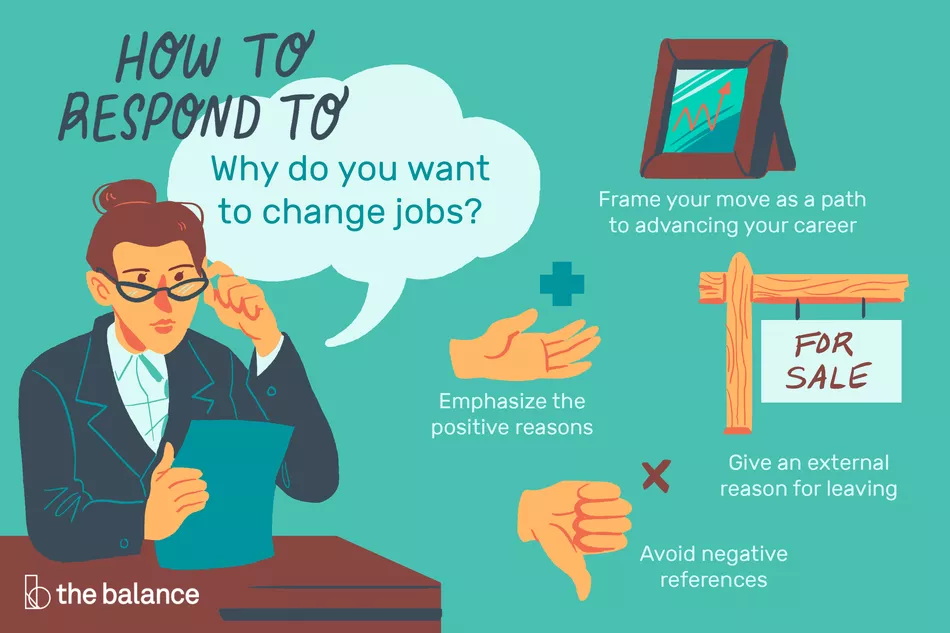interview questions why did you change careers
Hiring managers will end up being interested in why did you switch careers. They would like to hear you are leaving for the proper reasons – a much better opportunity, more difficulties, and career growth.
The interviewer would want to be sure that you are not change your careers due to poor performance, hard working relationships, or because you hate your job or your boss. When giving an answer to queries about why you are switching professions, it’s important to offer reassurance that you will be shifting on for the proper reason, not only to escape a bad work scenario.
Here are a few approaches you may use to reassure the interviewer you are leaving your job for the proper reasons.

interview questions why did you change careers? How exactly to Respond
Emphasize the positive explanations why you are targeting a job with their organization. Make reference to specific elements of the task, company culture, and company which correspond well together with your interests and skills.
Placing the concentrate upon your potential company subtly redirects the discussion from your own previous work encounter to your solid potential as their following employee. Additionally it is a terrific way to display that you’ve carried out your homework in researching their organization before your interview.
Frame your move as a way to advancing your job without disparaging your present career. One method to do that is usually to reference the areas of the brand new career which may actually carry more responsibility. Actually if the new profession doesn’t have an increased status, you could point out that you think it would give a springboard for a better job later on – once you have spent suitable time in your preliminary career with the company and also have mastered it.
You could also comment that you are feeling that the career you’re trying to get seems more aligned together with your long-term career goals, that you should be ready to discuss.
Integrate positive references to your present profession in your response, to ensure that it really is clear (or in least appears) you aren’t fleeing a bad circumstance. You are just wanting to improve upon an currently good situation. Of program, you should prevent any unfavorable references to administration, to salary, or even to the amount of hours worked.
Incorporate some positive reflections upon satisfying associations with supervisors, co-workers and customers, whenever feasible. You may describe opportunities they offered you for profession development, or discuss an especially rewarding experience you’d with a client.
Consider giving an exterior reason behind leaving. You might make reference to factors such as for example relocating to a far more urban region or searching for a profession that is nearer to home.
But, be obvious that is not the principal reason that you will be trying to get a career in the organization, just yet another element that contributed to your curiosity in the position.
The primary emphasis should be positioned upon the fit of the career itself. You may explain you are seeking to consider your job in a different path or use your abilities in a fresh way, which position provides an atmosphere your aged company was struggling to provide.
If it’s a well-known (general public) fact that your present employer includes a shrinking market talk about or other financial complications, you may refer to this problem after making a solid case for why the brand new career is suitable. Make sure to avoid posting any proprietary info or painting an overly bad picture of your present employer’s scenario, though. A vague mention of your employer’s troubles will most likely be sufficient.
Other Questions On the subject of Leaving Your Career
It might be that your known reasons for leaving your current employment aren’t completely positive, and while you have to stay truthful, you may cast occasions in a light that reflects positively you and also avoids reflecting negatively on your own former or present circumstance. It’s smart to consider your answers to the query of why you are departing your present profession, or why you had been fired, stop or resigned. In case you have experienced a gap in work, you have to be in a position to address that aswell. When you are looking for a career change, among the queries the interviewer could have is if you’re worth the chance of hiring.
Having solid, positive responses to these concerns will convince the potential employer you will be an asset to the business.
While changing professions for the right factors is a positive, wise career move that presents you are ambitious and savvy, your interviewer would want to determine that you’re not really a career hopper who’s apt to only stick with the business a short while. They want to understand that you are a person who could be relied upon as a valued component of their team.